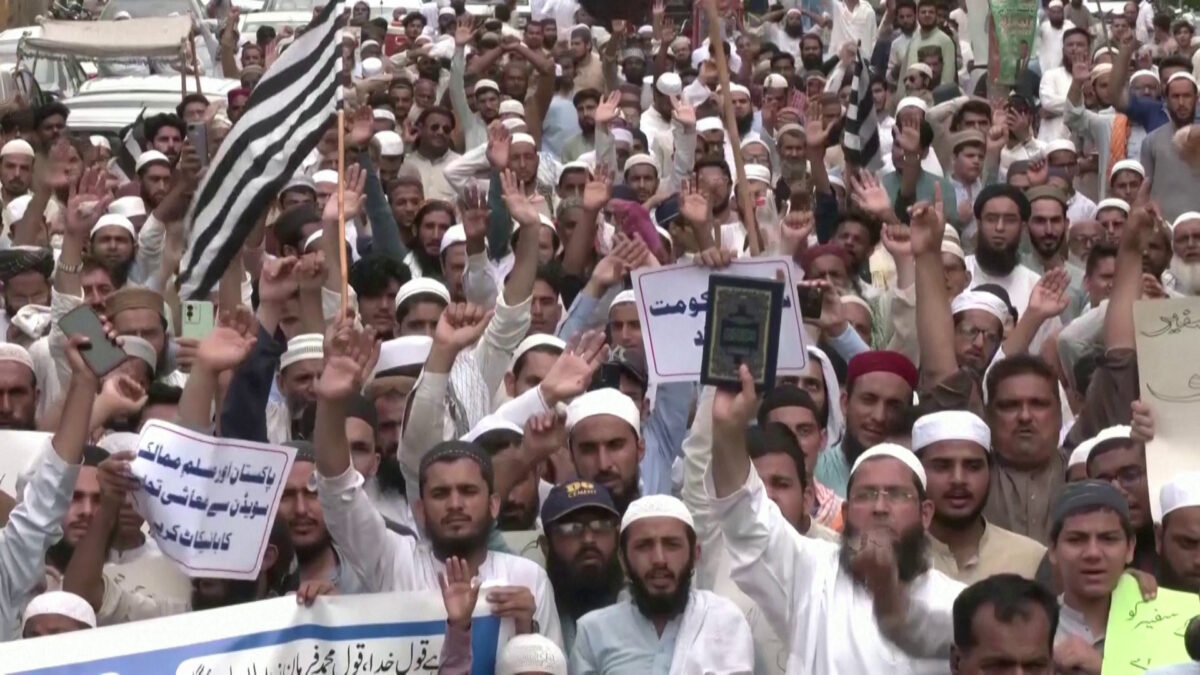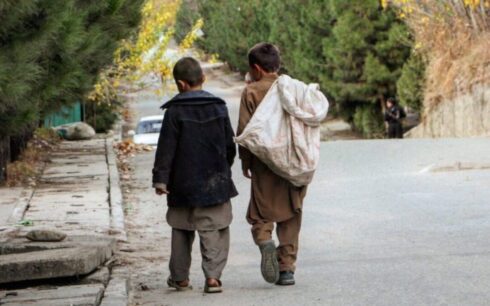The United Nations Human Rights Council (UNHRC) on Wednesday adopted a resolution condemning recent incidents in which the Holy Quran was burned.
The resolution, introduced by Pakistan on behalf of the 57-nation Organisation of Islamic Cooperation (OIC), comes in the wake of the most recent burning of the Holy Quran, outside a mosque in Sweden.
However, the resolution was strongly opposed by the United States and the European Union, who say it conflicts with their view on human rights and freedom of expression. While condemning the burning of the Holy Quran, they argued the OIC initiative was designed to safeguard religious symbols rather than human rights.
Pakistan’s ambassador to the UN, Khalil Hashmi, said after the vote that the move “does not seek to curtail the right to free speech,” but tries to strike a “prudent balance” between it and “special duties and responsibilities.”
“The opposition of a few in the room has emanated from their unwillingness to condemn the public desecration of the Holy Quran or any other religious book,” Hashmi said. “They lack political, legal and moral courage to condemn this act, and it was the minimum that the council could have expected from them.”
Mistreating the Holy Quran is considered blasphemy in Islam.
Meanwhile, Pakistan’s Foreign Minister Bilawal Bhutto-Zardari said in a video address to council members ahead of the vote that “we must see this clearly for what it is: incitement to religious hatred, discrimination and attempts to provoke violence.”
UN High Commissioner for Human Rights Volker Türk said on Tuesday as the special session debate got underway: “Speech and inflammatory acts against Muslims, Islamophobia, antisemitism, and actions and speech that target Christians — or minority groups such as Ahmadis, Baha’is or Yazidis — are manifestations of utter disrespect. They are offensive, irresponsible and wrong.”
Türk said hate speech must be combated through awareness, dialogue, education and interfaith engagement. He added that provocations such as public Quran burnings “appear to have been manufactured to express contempt and inflame anger; to drive wedges between people; and to provoke, transforming differences of perspective into hatred and, perhaps, violence.”
“Powered by the tidal forces of social media, and in a context of increasing international and national discord and polarization, hate speech of every kind is rising everywhere,” Türk said. “It is harmful to individuals, and it damages the social cohesion necessary to the sound functioning of all societies.”
The resolution, which calls for condemnation of attacks targeting the Holy Quran and described them as “acts of religious hatred,” was put to vote by the 47-member council.
The resolution was adopted with 28 countries voting in favor, 12 countries voting against it, and 7 countries abstaining at the 53rd regular session of the UN Human Rights Council.
Countries that voted in favor of the resolution included Algeria, Argentina, Bangladesh, Bolivia, Cameroon, China, Ivory Coast, Cuba, Eritrea, Gabon, Gambia, India, Kazakhstan, Kyrgyzstan, Malawi, Malaysia, Maldives, Morocco, Pakistan, Qatar, Senegal, Somalia, South Africa, Sudan, Ukraine, United Arab Emirates, Uzbekistan, and Vietnam.
Belgium, Costa Rica, the Czech Republic, Finland, France, Germany, Lithuania, Luxembourg, Montenegro, Romania, the UK, and the US voted against the resolution while the UK, US and some European Union member countries rejected condemning the burning of the Holy Quran during the debate.





